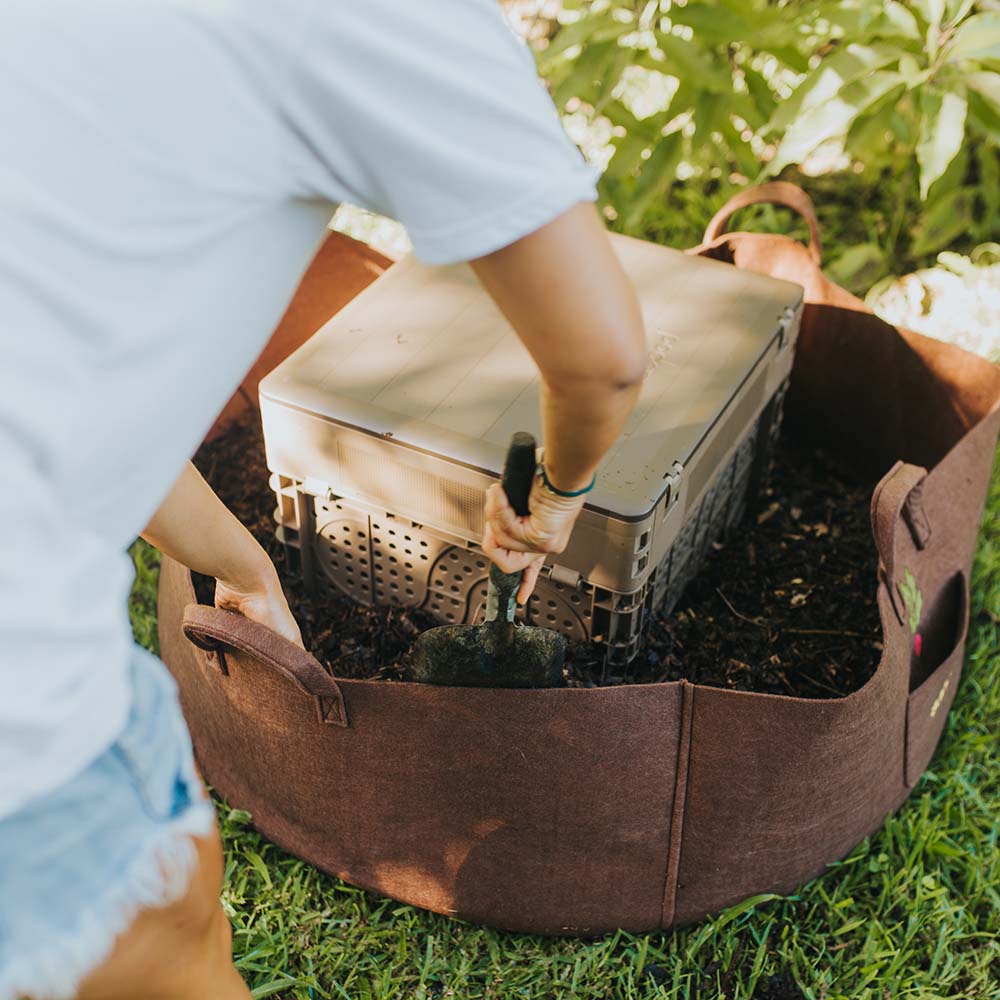Welcome to The Feed! This is where we share good news stories about the environment and composting tips with our community every week. Subscribe to our newsletter to get a short & sweet version of The Feed delivered to your inbox every week!
Regrow food scraps for a free garden
It’s the middle of winter, so your garden has probably slowed down, just when you could use some leafy greens from the patch to cut the grocery bills. But why not grow new food from your old food, indoors? For free!
A lot of the food you eat can easily be regrown on windowsills from the stems left over after you make a meal. You’re more likely to get a longer-lasting crop with organic veggies, but even a cheap celery from your local grocery store has got some life in it.
These are some of the most common vegetables you can regrow:
- Lettuce
- Celery
- Herbs (cilantro, mint, parsley, etc.)
- Spring onion
- Potatoes
And to help get your scrap bucket garden kickstarted, we’ve made simple guides on how to regrow all of them. For 90% of the veggies above, it’s as simple as plopping them in a jar of fresh water.
Read our blog for step-by-step instructions on how to regrow an infinite supply of your most common grocery list items!
Tackling speeding by... planting flowers?
A small village in Britain has recently found that the most effective way to stop motorists speeding isn’t more signs or lower speed limits – it’s wildflowers.
The village of Long Newnton in Gloucestershire has had an issue with fast-moving traffic as they pass from nearby towns for a long time. According to their council, 90% of the drivers who move through the area frequently break the posted speed limits, and extra signage or lowered speed limits hadn’t had an effect.
But when officials first planted flowers along the roadside during the pandemic to help improve biodiversity, they noticed something interesting. As well as attracting more wildlife, motorists also slowed down when they passed the flowers!
They’re not exactly sure why it works, but one cabinet member at the Cotswold District Council believes it may be because motorists feel they’re coming into an area that’s looked after.
Sometimes, though, we don’t need to know why something works. If planting flowers along curbs and roads encourages drivers to be more considerate, that’s just another reason to make our streets greener!
Gardening can lift your mood, even if you’re already happy
A new study has shown that the deep satisfaction people get from tending a garden is so powerful, it can lift the spirit of someone who’s already happy!
The study compared randomized and controlled indoor-group gardening classes with art classes, to see if the moods of healthy women with no history of prescriptions for depression or anxiety could be improved. It’s pretty uncommon for a study like this to look at healthy individuals with no mental health symptoms – and the results were quite surprising.
It found that even though the margin for improvement was very slim (how much happier can you make a happy person?) they still discovered positive benefits for the women! This means that if you are someone who struggles with anxiety, depression, mood swings or more, gardening has the potential to drastically improve your wellbeing.
If you’re stressed or feeling burdened, it can be difficult to work up the momentum to do basic tasks - let alone get out in the garden. But the study found that the more the women participated in either activity, the better they felt. Investing a little time everyday in something can have a big impact on your mood in the long term, even if you can only manage 15 minutes a day right now.
Haven't got a Subpod yet?
Check out our easy to use compost systems!







Leave a comment
This site is protected by reCAPTCHA and the Google Privacy Policy and Terms of Service apply.